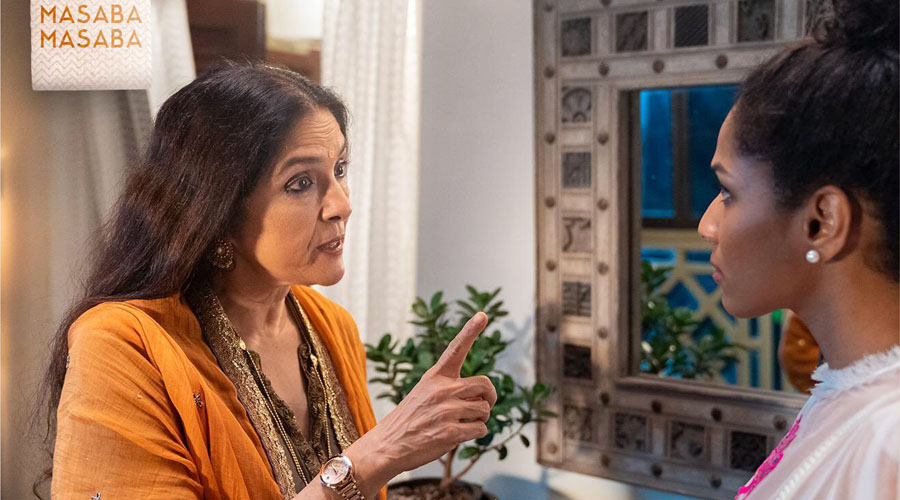The year 1988 was symptomatic of a change-ushering decade. In 1985, single woman Sarika and married man Kamal Haasan announced they were having a baby. No hasty marriage was on the cards. A step bolder than 1980, when Hema and Dharam went through hush-hush ceremonies before Esha arrived in 1981. Even wild child Protima Gupta had gone legit in the 1970s with marriage to Kabir Bedi and changed her surname before delivering Pooja. Therefore, Sarika’s stance when Shruti was born was daring for its time but by moving in with Kamal and giving his surname to her daughters, she still followed conventions.
In 1988, Neena Gupta flouted every known societal protocol when she had a baby but refused to reveal who the father was. There were whispers about her short-term relationship with cricketer Sir Vivian Richards but Neena wouldn’t spell it out. When Pritish Nandy pulled out the birth details of Baby Masaba (meaning princess in Swahili, also stands for courage and innovation), Neena was livid. In the ensuing 32 years, she hasn’t met Pritish, doesn’t wish to either, although burdens of the past don’t dog her. “I remember everything but don’t carry any baggage,” she affirmed from her home in Mukteshwar, up in the mountains in Nainital district, where she stayed through the lockdown, coming down to Mumbai only for a spell of work.
“You get hurt a lot, you get angry a lot, people may have wronged you a lot,” Neena added. “But you must move on and live your life. The past does surface in some reference but usey thappad marna chahiye, push it back.” Besides being biological parents to Masaba, Neena and Viv had something else in common. The daredevil master blaster had played without a helmet throughout his 17-year career. Neena too went into parenthood “without a protective helmet” so to speak. Viv stayed married to wife Miriam, Neena didn’t even desire his surname. Her daughter was Masaba Gupta from the day she was born.
But forthrightness found Neena opining that if she had to live her life again, she wouldn’t have a child out of marriage.
“The absence of one parent isn’t a great idea. A child needs both. It’s not just the parents but the whole family that comes with it, grandparents, chacha, chachi. But that’s my point of view. We’ve never sat down and talked about it.”
Neena aired that view in the stylishly told Masaba Masaba on Netflix where Masaba and she reprised their real life roles.
Her ease in cinema, stage and TV has been well documented. Written and directed by her, Saans (1998) was a landmark on Indian TV for exploring an extra-marital relationship. But couture celebrity Masaba’s incredible comfort before the camera was the sit-up-and-notice factor. “Even I was taken by surprise,” agreed Neena.
When the idea of juggling fact, fiction, fame and fashion was mooted, Neena had wondered, “Pata nahin kya bana rahe hain.” But director Sonam Nair, with whom she and Jackie Shroff did the delightful short film Khujli, coming up with a likeable script, Neena slipped easily into Masaba Masaba. “I thought I may feel awkward acting with Masaba,” she said. “I knew she was intelligent but it wasn’t easy playing yourself with lots of fiction in it.”
The best part is that neither had to fake the mother-daughter camaraderie — it was tangibly real. In fact, Neena has never entertained even a fleeting thought on how life would have been with a son. “Daughters are the best, especially for a mother. We share clothes, it’s like having a close friend.”
It’s a busy time for Neena. Season 2 of Panchayat on Amazon is on, films with diverse actors like Arjun Kapoor and Sanjay Mishra, and the main role in chef Vikas Khanna’s The Last Colour have all been shot. Many more are under discussion. Her comeback with a bang has been, thanks to Badhai Ho, successful and substantial. No 61-year-old has it better than Neena.











